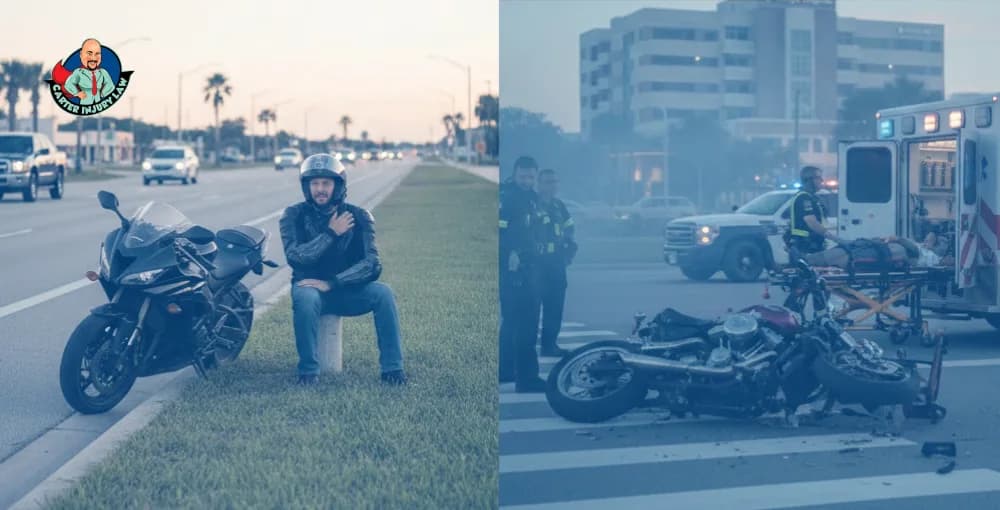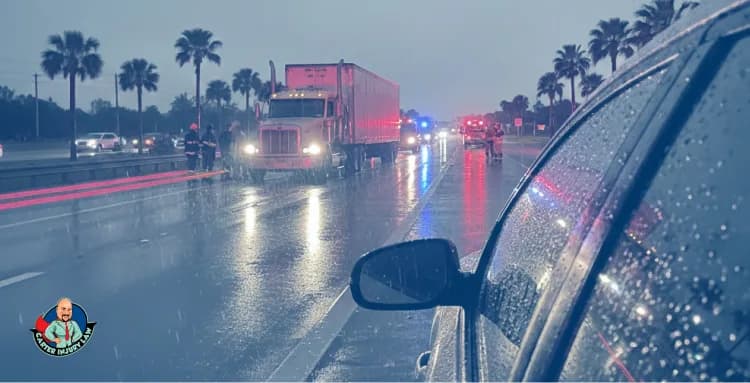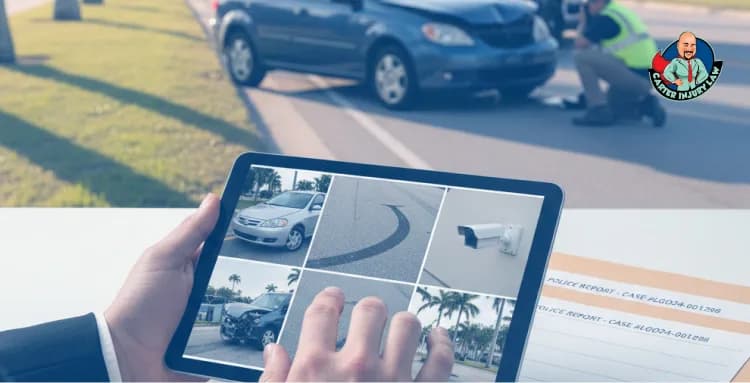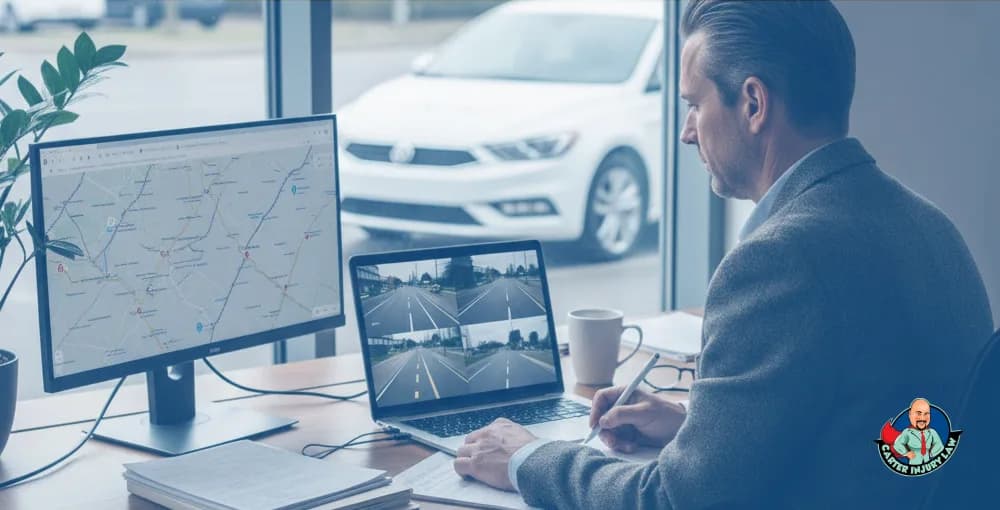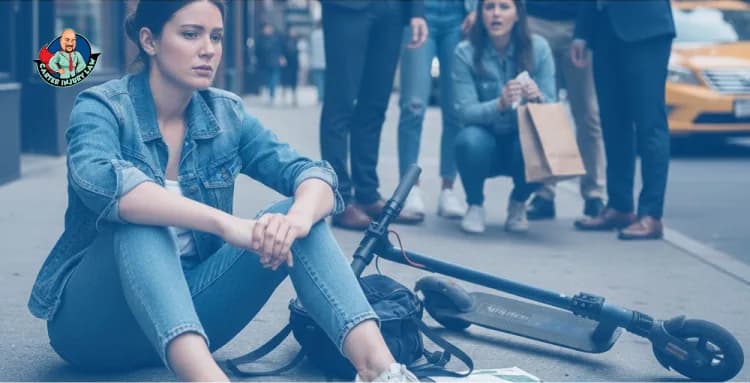In neighborhoods where the world feels just small enough to know everyone’s dog by name, it makes sense to trade horsepower for something more… human. Something less about the destination, and more about the short, quiet ride.
But laws don’t always align with how we feel. And in Tampa, that’s where things get a little complicated. Because what feels harmless on your quiet street might not be legal. And something as simple as driving a golf cart to the mailbox or to a neighbor's barbecue could result in fines, insurance issues, or worse.
So the question isn't just "Can I?" It’s—what don’t I know yet… that I should?
1) Golf Cart or Low-Speed Vehicle? The Legal Line That Could Cost You
A golf cart is defined under Florida law as a vehicle that’s not capable of exceeding 20 miles per hour. These are commonly used in residential communities, retirement areas, and, of course, on golf courses. When used appropriately, they don’t require a title, registration, or insurance.
However, once that same vehicle is modified or built to exceed 20 mph, even slightly, it becomes a Low-Speed Vehicle (LSV) under both state and federal law.
And that changes everything.
An LSV must be registered with the Florida Department of Highway Safety and Motor Vehicles (FLHSMV), titled, and insured. It also has to meet strict safety standards: headlights, brake lights, seatbelts, rearview mirrors, reflectors, turn signals, a windshield, and a parking brake, just to name a few.
All Low-Speed Vehicles must comply with Federal Motor Vehicle Safety Standard 500 (FMVSS 500).
Understanding this line between casual and classified helps keep your Sunday drive from turning into a Monday court date.
2) Are Tampa Streets Golf Cart Friendly? Not All of Them.
Under Florida Statute, golf carts are only permitted on public roads that have been specifically approved by the local government. Even then, those roads must have a posted speed limit of 30 miles per hour or less.
You can’t just hop in a golf cart and drive down your suburban street unless the city or county has made that street legally accessible for golf cart use.
In the Tampa area, Davis Islands is the most well-known example of this. There, local authorities have approved certain routes for golf carts, and the roads meet the required speed and safety standards.
However, for most neighborhoods in Hillsborough County, golf cart access is still off-limits.
“As of 2023, Hillsborough County has approved golf cart access for less than 5% of its neighborhood roads.”
— Hillsborough County Public Works
Why is approval so limited? The process involves a formal request, traffic studies, safety evaluations, and signage. The county looks at things like road width, traffic volume, pedestrian risk, and visibility before giving the green light.
If your community is not on that list and you drive a golf cart on an undesignated street, you may be cited and, worse, held liable in the event of a collision.
3) How Old Do You Have to Be?
As of July 1, 2023, Florida law changed to make it crystal clear: anyone operating a golf cart on public roads—even in a golf-cart-approved community—must carry valid identification.
That means
If you’re 14 or older, you need at least a learner’s permit
If you’re 16+, a valid driver’s license is required
And this isn't just about ticking a box. Violating the age or licensing rule can lead to fines, traffic citations, and more serious implications if an accident occurs involving injuries or property damage.
Because if an unlicensed minor is behind the wheel during a crash, it could complicate insurance claims, lead to denied coverage, and open the door to personal liability lawsuits.
4) Before You Ride, Ensure Safety Equipment
Whether you’re driving through a designated community or just crossing a public road, your golf cart must be equipped with basic operational gear. That means
Reliable brakes
Reflectors (front and rear)
A rearview mirror
Proper steering control
Tires in safe, usable condition
Those are the minimum expectations for daytime use on approved roads.
Planning to drive after sunset? The requirements are even stricter. If your route is legally approved for nighttime use, your cart must also have:
Headlights
Brake lights
Turn signals
A windshield
And here's why it matters beyond just legal compliance:
“The U.S. Consumer Product Safety Commission reports over 13,000 golf cart-related injuries each year, often caused by missing or malfunctioning safety equipment.”
— U.S. Consumer Product Safety Commission
We’ve represented individuals seriously injured because a golf cart didn’t stop in time, wasn’t visible at night, or lacked the basic features needed to avoid a preventable crash.
5) Who’s at Fault When Things Go Wrong?
One of the most common misunderstandings we see is people assume their homeowner’s or auto insurance will automatically cover a golf cart accident. That is not always true, especially if the cart was being driven illegally.
If you're driving a golf cart on a public road that hasn't been officially designated for golf cart use, your insurance provider may consider that a breach of policy terms. And if the driver is unlicensed, or the vehicle lacks required safety features, the coverage could be denied altogether.
In these scenarios, even minor accidents can turn into major problems:
Medical bills for injured pedestrians, cyclists, or passengers
Property damage—to vehicles, fences, landscaping, or city infrastructure
Lawsuits from injured parties or their insurers
Personal liability if the claim isn’t covered under any existing policy
The rule is, if your golf cart isn’t street-legal, don’t treat it like a car. And if you are using it on the road—even in a golf-cart-approved area—call your insurance provider and make sure you’re covered. Some policies offer specific golf cart riders. Many don’t.
Don’t guess. Don’t rely on what your neighbor told you. Know your policy, your rights, and the law before the keys ever leave the hook.
6) Carter Injury Law Provides Legal Protection for Life’s Unexpected Turns
It starts quietly like most things that go wrong. One moment you're waving to a neighbor, coasting through your street, and the next, there’s a sound you can’t ignore. Then come the questions. The reports. The forms. And silence from the insurance company that once promised they’d be there.
We’ve represented injured pedestrians, wrongfully blamed drivers, and families navigating complicated insurance denials—all because a golf cart was used in the wrong place at the wrong time. Florida’s laws may look simple on the surface, but when liability enters the equation, it takes an experienced legal team to protect your rights and fight for what’s fair.
That’s why we don’t rush to conclusions. We listen first. We look at what happened. We find out what the law says and what the insurance companies aren’t telling you. Then we fight for the outcome you deserve. Because in moments like these, you shouldn’t be alone, and you definitely shouldn’t be left guessing.
We offer free consultations, full case evaluations, and we work on a contingency fee basis because justice shouldn’t depend on your bank account.




